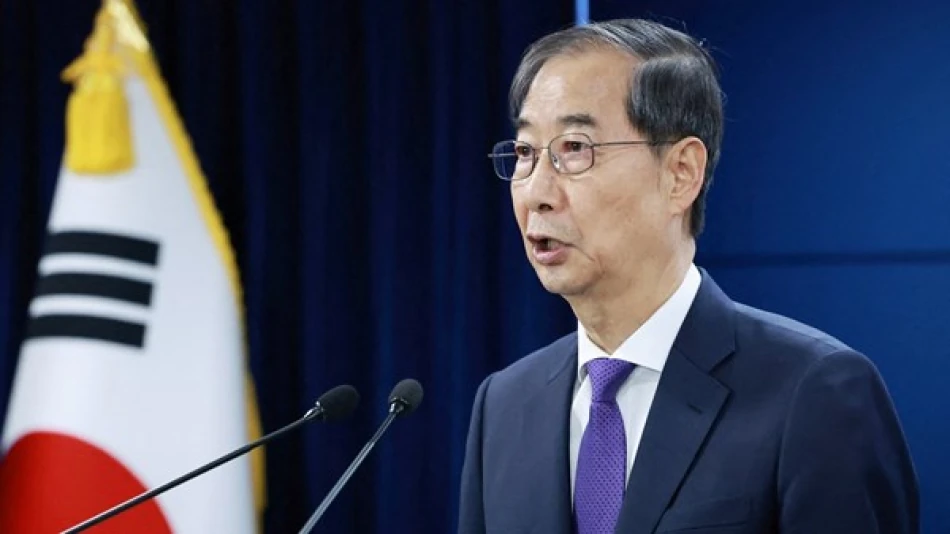
South Korean Prosecutors Seek Arrest of Former Prime Minister in High-Profile Corruption Case
South Korea's Political Crisis Deepens as Former Prime Minister Faces Arrest Over Martial Law Conspiracy
South Korean prosecutors have escalated their investigation into December's martial law crisis by seeking an arrest warrant for former Prime Minister Han Duck-soo, accusing him of conspiring with ousted President Yoon Suk Yeol in the failed power grab that plunged the nation into political chaos. The move signals prosecutors are casting a wider net beyond Yoon himself, potentially implicating the entire conservative leadership structure in what many consider South Korea's gravest constitutional crisis in decades.
The Charges Against Han Duck-soo
Special prosecution spokesperson Park Ji-young announced Sunday that Han faces charges of collusion in the martial law declaration and perjury. The allegations suggest Han was not merely a passive observer but an active participant in Yoon's attempt to suspend democratic governance in December 2024.
Han, who served as Prime Minister under Yoon before becoming acting president following Yoon's suspension, has maintained silence when questioned by reporters in recent weeks. His refusal to engage publicly contrasts sharply with the intense scrutiny surrounding the case that has captivated South Korean politics.
From Acting President to Criminal Suspect
The Rapid Fall from Power
Han's trajectory illustrates the swift political reversals that have characterized this crisis. After Yoon's impeachment in April 2024, Han assumed the role of acting president—a position that should have elevated his political standing. Instead, he resigned to pursue the presidency in June's elections, only to see his ambitions crushed by internal conservative party divisions.
This internal fracturing of South Korea's conservative movement represents a broader realignment that could reshape the country's political landscape for years. The martial law attempt has not only destroyed individual careers but potentially discredited conservative governance more broadly.
Broader Implications for South Korean Democracy
Testing Democratic Institutions
The prosecution's aggressive pursuit of both Yoon and Han demonstrates South Korea's democratic institutions functioning as designed—a stark contrast to the authoritarian periods that martial law evokes. The country's last experience with martial law came during the military dictatorship era, making Yoon's December attempt particularly jarring for a society that has embraced democratic norms since the 1980s.
Unlike other recent democratic stress tests globally, South Korea's system appears to be holding firm. The rapid impeachment process, the seamless transition to acting leadership, and now the criminal prosecutions suggest institutional resilience that could serve as a model for other democracies facing authoritarian challenges.
Economic and International Ramifications
The political instability has created uncertainty for South Korea's major economic partnerships and security arrangements. As a key U.S. ally in containing North Korean threats and a crucial player in global supply chains—particularly semiconductors—prolonged political chaos could have regional implications.
However, markets have shown relative stability, suggesting confidence that South Korea's democratic institutions will ultimately prevail. The swift legal response may actually strengthen international trust in South Korean governance over the long term.
What's Next
With both the former president and former prime minister now facing criminal charges, South Korea is witnessing an unprecedented legal reckoning with attempted authoritarianism. The cases will likely dominate headlines for months, potentially influencing future elections and reshaping public trust in conservative political movements.
The prosecution's willingness to pursue high-level officials signals that South Korea's post-democratization generation will not tolerate threats to constitutional governance—a message that resonates far beyond the peninsula in an era of global democratic backsliding.
Most Viewed News

 Layla Al Mansoori
Layla Al Mansoori






